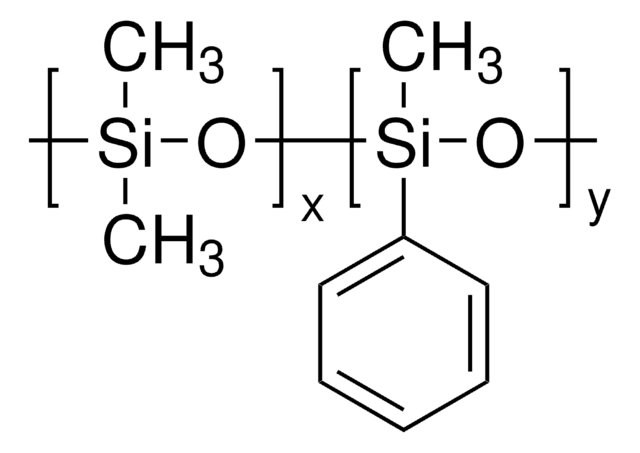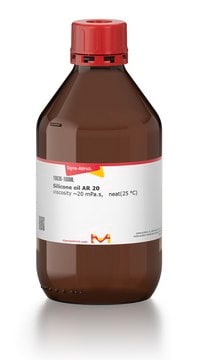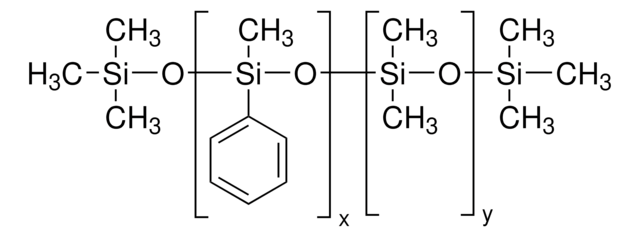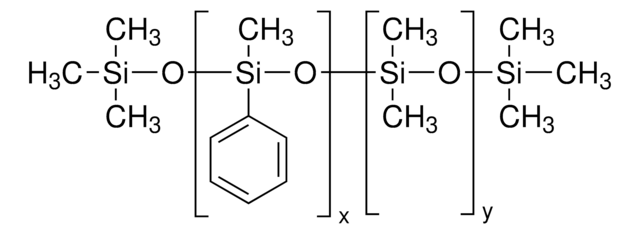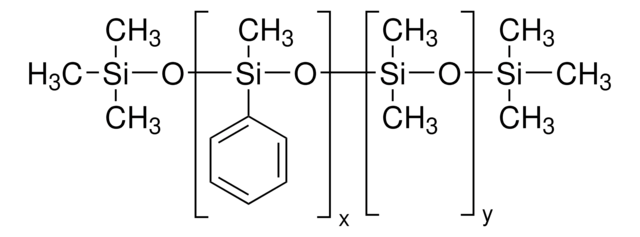About This Item
Recommended Products
vapor density
>1 (vs air)
Quality Level
vapor pressure
<5 mmHg ( 25 °C)
5 mmHg ( 20 °C)
form
viscous liquid
refractive index
n20/D 1.403 (lit.)
viscosity
100,000 cSt(25 °C)
bp
>140 °C/0.002 mmHg (lit.)
density
0.971 g/mL at 25 °C
Looking for similar products? Visit Product Comparison Guide
Storage Class Code
10 - Combustible liquids
WGK
WGK 1
Flash Point(F)
214.0 °F - closed cup
Flash Point(C)
101.1 °C - closed cup
Personal Protective Equipment
Regulatory Listings
Regulatory Listings are mainly provided for chemical products. Only limited information can be provided here for non-chemical products. No entry means none of the components are listed. It is the user’s obligation to ensure the safe and legal use of the product.
JAN Code
378437-VAR:
378437-1L:
378437-5ML:
378437-BULK:
378437-250ML:
Choose from one of the most recent versions:
Already Own This Product?
Find documentation for the products that you have recently purchased in the Document Library.
Customers Also Viewed
Our team of scientists has experience in all areas of research including Life Science, Material Science, Chemical Synthesis, Chromatography, Analytical and many others.
Contact Technical Service
